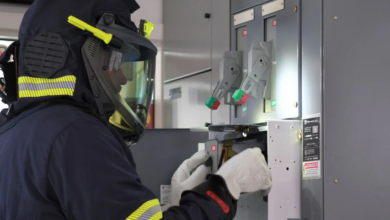Unlocking Lightweight Efficiency with Aluminum Sheet Fabrication in EVs

With the development of the motor industry towards the new era of electrification, lightweight materials may be seen as one of the crucial factors deciding not only the efficiency but also the performance of the vehicle. One of these is aluminum which is a game changer. Its combination of weight, strength, and corrosion resistance is perfect, and that is why it is used in the construction of electric vehicles (EVs). Advanced sheet metal fabrication technologies in aluminium sheet metal are now enabling providers of sheet metal to strengthen structural integrity and improve the energy efficiency of EVs in today’s world so as to catalyse a clean transportation future.
How Aluminum is Fitting into the Next Generation EV Design
Aluminum is no longer a fancy material anymore, it is a must at the design of a new EV. Auto companies have been relying upon this lightweight metal as a means of countering the big weight of lithium-ion batteries needed but which can have a severe toll on the range capability of a car. Incorporation of aluminum in the implementation of chassis, body panels and support structures enable designers to realize significant weight reductions without compromising paddock performance or safety. In comparison, aluminum offers a weight savings of up to 50 percent (as compared with steel), and that leads directly into either additional range or better performance numbers of the electric cars in use. The sheet metal manufacturers who deal with aluminium sheet metal fabrication are therefore being quite instrumental in the forthcoming powerful-yet-energy-efficient EVs.
Battery Safety and Thermal Enhancement
The core of each electric vehicle is its battery pack, which should be safe, cooled and resistant. Aluminum has a high rate of thermal conductivity thus making it ideal in the control of heat inside battery compartments. Battery enclosures also can be made with aluminium sheet metal fabrication and be designed to dissipate heat found inside the battery effectively and prevent the risk of thermal runaway. Simultaneously, aluminum in itself is a strong material and provides a protective cover to the battery modules against an impact or collision. Fabricators are also able to create multi-purpose components which may be used as a structural element as well as the thermal management whereas the automakers can make use of the space and overall weight of the vehicle in reduction. The coordinated efforts of the battery developers and sheet metal producers have resulted in the emergence of unique aluminum-based shells that serve two purposes: they protect the battery itself, yet contain their roles in maintaining the battery temperature in case of high loads or e-charging.
Sustainability Through Recyclability and Low-Carbon Fabrication
Besides the other beneficial properties affiliated to performance, aluminum also comes with the alternative of being recyclable, a quality that is critical in current dispensations where sustainable manufacturing is a not only a desirable attribute, but also a mandatory requirement. Aluminum, moreover, has a fraction (and significantly smaller) carbon cost when it is recycled, as compared to manufacturing it out of silicates. Consequently, the use of aluminium sheet metal fab does not go out of place in terms of the environmental targets of EV manufacture. Future-wise sheet metal companies are utilizing a closed-loop recycling process, in which the scrimped material is re-utilized in-line to minimize the waste and optimize the use of materials. This type of closed-loop is becoming popular with EV manufacturers that will focus on promoting a circular process of manufacture and reducing carbon footprint. With increasing demand from the regulatory bodies of a more nature-friendly solution, the sustainability credential of the aluminum becomes one of its major sales points, not only among environmentalists but also among investors and final consumers.
Compositeness and Rapid Prototyping and Tailoring
Electric cars are usually fairly uncommon vehicles, which have to have special parts whose production volumes can not always be reached at the first stage. Here the malleability of Aluminum and the plasticity of the manufacturing processes comes into play. That is why in the modern world of fast paced cycles and development prototyping is an untenable exercise where sheet metal manufacturers with CNC capable machineries and robotic systems are able to complete a sheet metal prototype of the design files in a few days maximum. The aluminium sheet metal manufacturing process is also adaptable to the personalization of the vehicle parts such as battery bracket, motor mount, interior structural and exterior trim. Sheet metal laser cutting services can be provided in one sentence as both sheet metal laser cutting and aluminium sheet metal manufacturing are used to provide custom parts within tight tolerance and design requirements within the shortest time. This makes the automakers easily flexible, responsive in design modifications, change in regulations, or customer responses.
Creating Safety, Beauty and Utilitarian Significance
The use of aluminum does not only accomplish functionality; it fulfills the requirements of aesthetics and safety as well. Aluminum alloys are also widely utilised in crash protection with regard to possession of energy absorbing qualities. The pattern of deformations in case of crash can be accurately estimated by engineers who can strategically position some aluminum reinforcements to shield the occupants of the vehicle. Aesthetically, the aluminum can take a wide range of textures including brushed and high-gloss paints and anodized finishes spotting it as a perfect material both inside and outside. The possibility to create glossy and streamlined panels can also assist EV designers to comply with the contemporary demands to look and visual identity. With the involvement of the sheet metal manufacturers, the automobile manufacturers can rest assured that its proposed parts made of aluminum are safety conscious, and the sleek and future-ready appearance. The sleek and futuristic appeals to the current consumers inclined to environment-friendly products.
To sum up, the production of aluminum sheets has turned out to be a necessary condition of the success and further development of the electric vehicle market. Its unsurpassed combination of strength, lightweight and sustainability is driving innovation and assisting EV brands to achieve their performance and environmental targets. Due to breakthroughs made in terms of aluminium sheet metal work, as well as the accuracy of contemporary sheet metal fabricator, the future of electric mobility never seemed as lightweight, robust and environmentally friendly as today.





